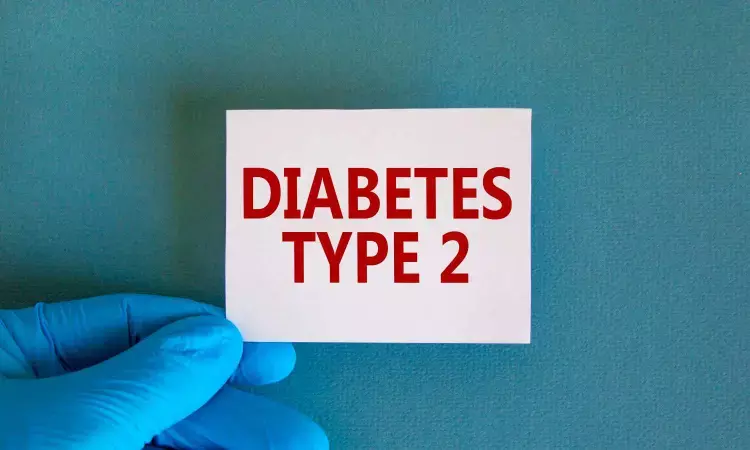- Home
- Medical news & Guidelines
- Anesthesiology
- Cardiology and CTVS
- Critical Care
- Dentistry
- Dermatology
- Diabetes and Endocrinology
- ENT
- Gastroenterology
- Medicine
- Nephrology
- Neurology
- Obstretics-Gynaecology
- Oncology
- Ophthalmology
- Orthopaedics
- Pediatrics-Neonatology
- Psychiatry
- Pulmonology
- Radiology
- Surgery
- Urology
- Laboratory Medicine
- Diet
- Nursing
- Paramedical
- Physiotherapy
- Health news
- Fact Check
- Bone Health Fact Check
- Brain Health Fact Check
- Cancer Related Fact Check
- Child Care Fact Check
- Dental and oral health fact check
- Diabetes and metabolic health fact check
- Diet and Nutrition Fact Check
- Eye and ENT Care Fact Check
- Fitness fact check
- Gut health fact check
- Heart health fact check
- Kidney health fact check
- Medical education fact check
- Men's health fact check
- Respiratory fact check
- Skin and hair care fact check
- Vaccine and Immunization fact check
- Women's health fact check
- AYUSH
- State News
- Andaman and Nicobar Islands
- Andhra Pradesh
- Arunachal Pradesh
- Assam
- Bihar
- Chandigarh
- Chattisgarh
- Dadra and Nagar Haveli
- Daman and Diu
- Delhi
- Goa
- Gujarat
- Haryana
- Himachal Pradesh
- Jammu & Kashmir
- Jharkhand
- Karnataka
- Kerala
- Ladakh
- Lakshadweep
- Madhya Pradesh
- Maharashtra
- Manipur
- Meghalaya
- Mizoram
- Nagaland
- Odisha
- Puducherry
- Punjab
- Rajasthan
- Sikkim
- Tamil Nadu
- Telangana
- Tripura
- Uttar Pradesh
- Uttrakhand
- West Bengal
- Medical Education
- Industry
Exposure to Dietary nitrites linked to risk of incident type 2 diabetes

Nitrites and nitrates occur naturally in water and soil and are commonly ingested from drinking water and dietary sources. They are also used as food additives to increase shelf life.Some public health authorities have advocated for limiting the use of nitrites and nitrates as food additives. However, the role of dietary nitrites and nitrates in metabolic dysfunction and type 2 diabetes in humans remains unexplored.
French researchers have reported in a new study that greater daily exposure to nitrites in additives in food and water may increase the risk for type 2 diabetes.
The study has been published in the open access journal PLOS Medicine.
In order to investigate the relationship between dietary exposure to nitrites/nitrates type 2 diabetes risk, researchers accessed data collected from 104,168 participants in the prospective cohort NutriNet-Santé. The NutriNet-Santé study is an ongoing, web-based cohort study initiated in 2009. Participants aged fifteen and older enroll voluntarily and self-report medical history, sociodemographic, diet, lifestyle, and major health updates. The researchers used detailed nitrite/nitrate exposure, derived from several databases and sources, and then developed statistical models to analyze self-reported diet information with health outcomes.
The researchers found that participants in the NutriNet-Santé cohort reporting a higher intake of nitrites overall and specifically from food additives, and non-additives sources had a higher risk of developing type 2 diabetes. There was no association between nitrates and type 2 diabetes risk, and the findings did not support any potential benefits for dietary nitrites or nitrates in terms of protection against type 2 diabetes. The study had several limitations and additional research is required to validate the results.
The data were self-reported and the researchers could not confirm specific nitrite/nitrate exposure using biomarkers due to the underlying biological challenges. Additionally, people in the cohort’s demographics and behaviors may not be generalizable to the rest of the population-the cohort included a greater number of younger individuals, more often women, who exhibited healthier behaviors. Residual confounding may also have impacted the outcomes as a result of the observational design of the study.
According to the authors, “These results provide a new piece of evidence in the context of current discussions regarding the need for a reduction of nitrite additives’ use in processed meats by the food industry, and could support the need for better regulation of soil contamination by fertilizers. In the meantime, several public health authorities worldwide already recommend citizens to limit their consumption of foods containing controversial additives, including sodium nitrite”.
Srour and Touvier add, “This is the first largescale cohort study to suggest a direct association between additives-originated nitrites and type-2 diabetes risk. It also corroborates previously suggested associations between total dietary nitrites and T2D risk.”
Reference:
Bernard Srour, Eloi Chazelas, Nathalie Druesne-Pecollo, Younes Esseddik, Fabien Szabo de Edelenyi, Cédric Agaësse, Alexandre De Sa, Rebecca Lutchia, Charlotte Debras, Laury Sellem, Inge Huybrechts, Chantal Julia, Emmanuelle Kesse-Guyot Published: January 17, 20 https://doi.org/10.1371/journal.pmed.1004149
Dr Kamal Kant Kohli-MBBS, DTCD- a chest specialist with more than 30 years of practice and a flair for writing clinical articles, Dr Kamal Kant Kohli joined Medical Dialogues as a Chief Editor of Medical News. Besides writing articles, as an editor, he proofreads and verifies all the medical content published on Medical Dialogues including those coming from journals, studies,medical conferences,guidelines etc. Email: drkohli@medicaldialogues.in. Contact no. 011-43720751


